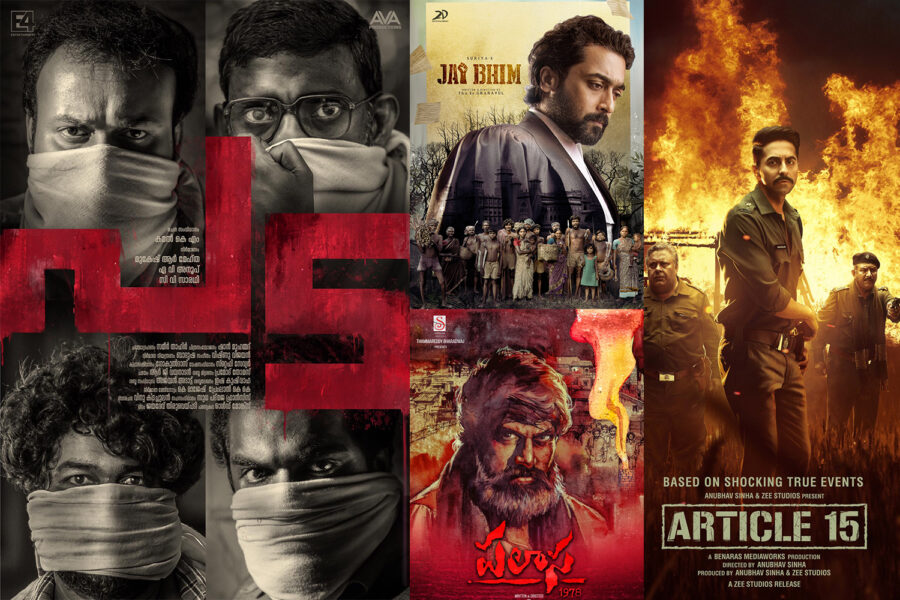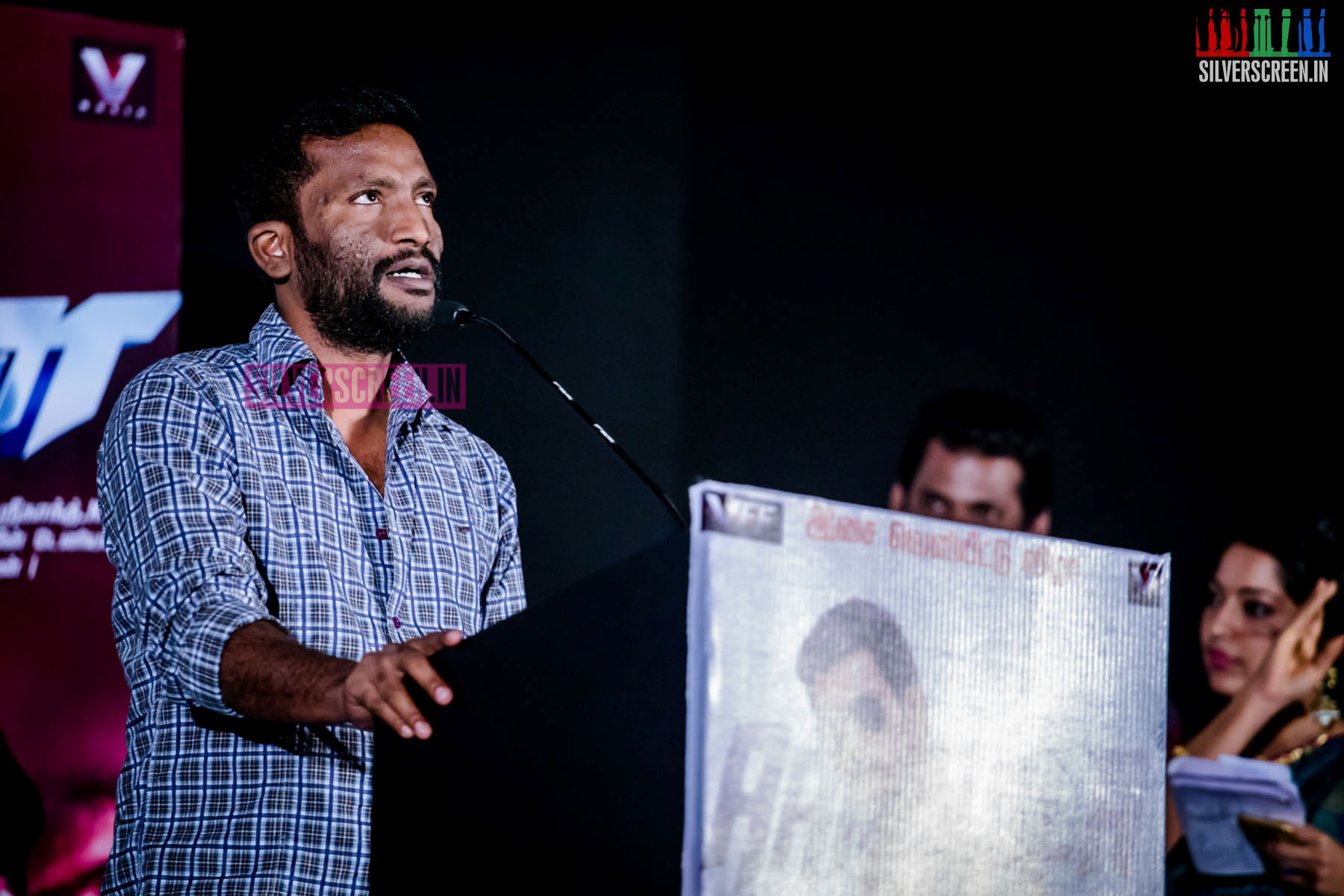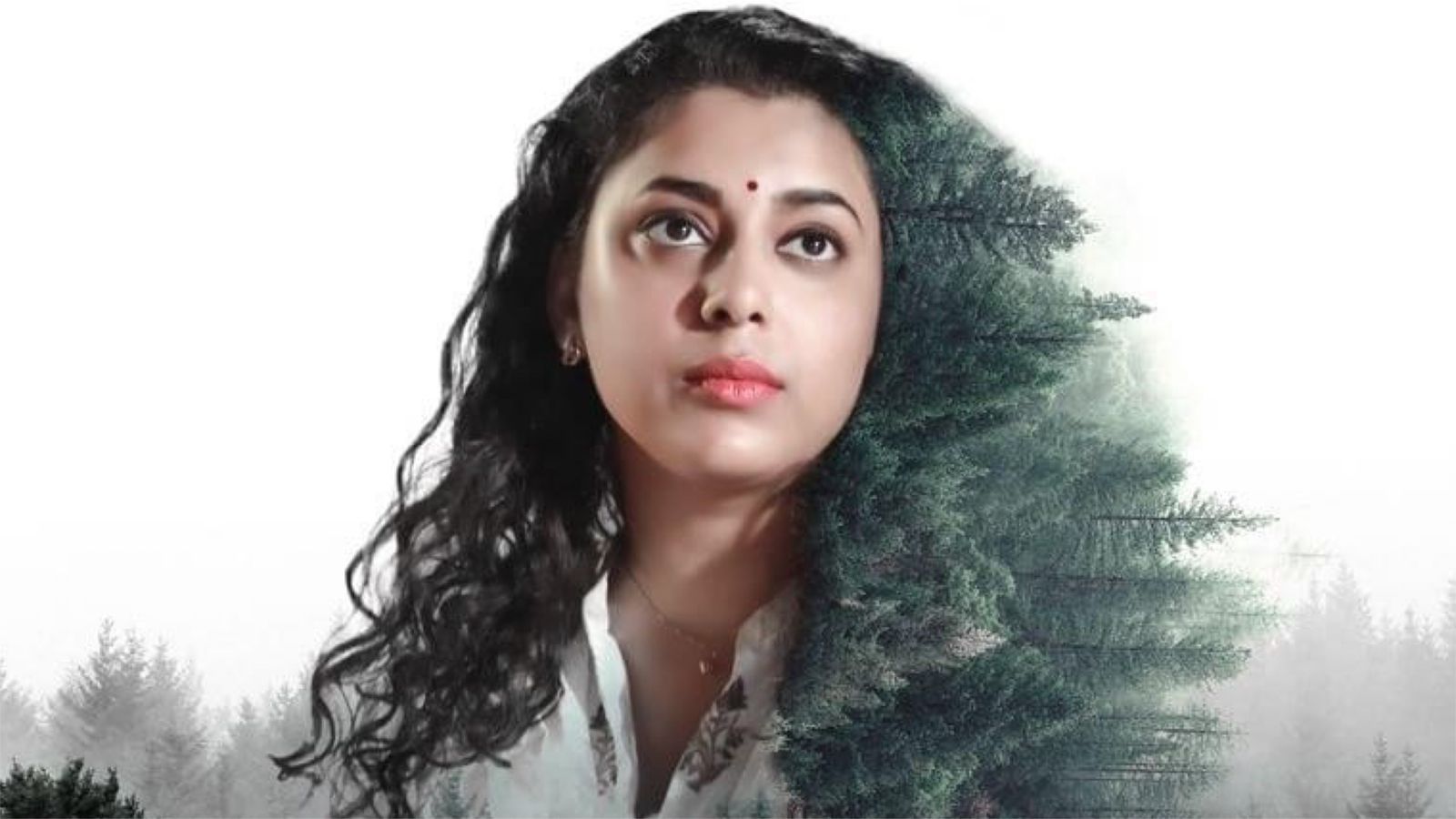Dalit History Month is observed in the month of April, which also marks the birth anniversaries of anti-caste icons BR Ambedkar (April 14) and Jyotirao Phule (April 11). It is a way of remembering important people and events in the history of the long-oppressed members of the Dalit communities, and during this month, several festivals and events are organised towards that end, such as the Vaanam Art Festival, spearheaded by filmmaker Pa Ranjith’s Neelam Panpattu Maiam.
Given cinema often draws inspiration from real life, caste has been a recurring theme in Indian films. From Ranjith’s own Tamil films to the Hindi film Article 15, based on 2014 Badaun gang-rape allegations and 2016 Una flogging, several movies have highlighted caste oppression and portrayed the lives of people from marginalised communities.
Silverscreen India has curated this list of 15 such films that you can watch this Dalit History Month.
Ankur (Hindi)
This film marks the feature directorial debut of Shyam Benegal. Starring Anant Nag and Shabana Azmi as oppressed Dalits, Ankur follows the life of Lakshmi (Azmi) who lives in a village in Andhra Pradesh, along with her deaf-mute, unemployed husband. Nag stars as the zamindar’s son, who is sent to the village to look after his family’s farmland; he employs the couple as his labourers. The film explores themes of caste differences, sexism, patriarchy, and privilege. The film garnered three National Film Awards in 1975 for Second Best Feature Film, Best Actor, and Best Actress. Ankur is currently streaming on Disney+ Hostar.
Article 15 (Hindi)
Based on Article 15 of the constitution, which prohibits discrimination on the basis of religion, race, caste, sex, or birthplace, this investigative drama is led by Ayushmann Khurrana. It deals with an officer who investigates the case of a missing Dalit girl in a remote, backward village, after two Dalit girls are found hanging from a tree. While the film makes no direct reference to a specific incident, it is loosely based on the 2014 Badaun gang-rape case and the 2016 Una flogging incident. The film is currently being remade in Tamil as Nenjukku Needhi, starring actor-politician Udhayanidhi Stalin and directed by Arunraja Kamaraj. Article 15 is available on Netflix.
Asuran (Tamil)
Headlined by Dhanush, director Vetri Maaran’s Asuran is an adaptation of Poomani’s novel Vekkai. It won the National Film Award for Best Feature Film in Tamil in 2021, at the 67th National Film Awards, and the Best Actor Award for Dhanush. Asuran is a revenge drama that shows the status of Dalit farmers and land rights in India. Dhanush plays a farmer on the run along with his son, after the latter kills a wealthy upper-caste landlord to avenge his brother’s murder. The film also depicts a scene where Dalit characters are harassed for wearing footwear in the village. Asuran was remade in Telugu as Narappa and both versions are available on Amazon Prime Video.
C/o Kancharapalem (Telugu)
An anthology written and directed by Venkatesh Maha, C/o Kancharapalem is about four couples in the town of Kancharapalem near Vizag. The film talks about caste, class and religious differences and features Subba Rao, along with non-actors who hail from the locality. According to The Wire, the film “captures the contemporary shift from overt caste discrimination to its subtle forms” and shows the ways caste “operates at various levels.” The film received praise and was remade as C/o Kaadhal in Tamil. The Telugu film is available on Netflix.
Geeli Pucchi from Ajeeb Daastaans (Hindi)
A segment of the Ajeeb Daastaan anthology, Geeli Puchhi is directed by Neeraj Ghaywan, who has previously made another film Masaan, which also offers a commentary on caste. Geeli Puchhi talks about the equation between an upper-caste working wife (Aditi Rao Hydari) and a Dalit queer woman (Konkana Sen Sharma), who is aiming to climb up the professional ladder. Silverscreen India’s review says Geeli Puchhi “lays out intersectionality like it is – the most confusing highway interchange.” Calling the short a ‘masterclass’, the review further notes, “Ghaywan’s Geeli Puchhi is refreshingly complex in the distinctions it forces us and the characters to commit.” The anthology is streaming on Netflix.
Jai Bhim (Tamil)
Named after the Ambedkarite slogan, Jai Bhim is written and directed by TJ Gnanavel. It is produced by actor Suriya, who also stars in the film as a lawyer who fights for justice for people from the Irular tribal community. Also featuring Lijomol Jose, Rajisha Vijayan, and Prakash Raj, it deals with police brutality and custodial deaths that the community faced. The film is based on a real-life case fought by retired Madras High Court Justice K Chandru, when he was an advocate in the 90s. Although the film was criticised by certain communities, it was widely appreciated for its daring portrayal of caste violence. Jai Bhim is streaming on Amazon Prime Video.
Kammatipaadam (Malayalam)
Kammatipaadam is headlined by Dulquer Salmaan and directed by Rajeev Ravi. The film revolves around the titular slum locality in Kochi, Kerala. It narrates the way the Dalit community were forced real estate mafia into leaving their land to pave the way for urbanisation. The film also stars Vinayakan, Shane Nigam, Shine Tom Chacko among others. It opened to positive reviews and fetched the team four Kerala State Film Awards in 2016. Kammatipaadam is available on Disney+ Hotstar.
Maadathy– An Unfairy Tale (Tamil)
Helmed by Leena Manimekalai, Maadathy focuses on the Puthirai Vannaar community in Tamil Nadu. In a previous interview with us, Leena had said that she read about this caste in the fifth volume of Ambedkar’s writings, in an article titled Civilisation or Felony. The “unseeable” Dalit community is one of the most oppressed castes in Tamil Nadu and their forced occupation involves washing clothes of other Dalits, the dead, and menstruating women. Ambedkar’s description of them as a group that is “not allowed to come out during day time because their sight is enough to cause pollution” led her to learn more about them and eventually, to make Maadathy. The film follows the life of a young girl Yosana (Ajmina Kassim) from the Puthirai Vannaar caste, and tells the tale of how she becomes immortalised as the local deity Maadathy after a traumatic incident. The film is available on Neestream and MUBI.
Mandela (Tamil)
Led by Yogi Babu, who is usually seen in comic roles, Mandela is a political satire about a Dalit barber. Yogi Babu’s character, who goes by the name Smile, later rechristens himself as Mandela after he gains prominence when his vote becomes the deal-breaker during caste-divided local elections. Madonne Ashwin, who directed the film, had said in an earlier interview with us that the lens of filmmaking has changed in recent times and it now shines a light on marginalised and oppressed communities. He further added that this is a welcome change.
Pada (Malayalam)
Pada, starring Kunchacko Boban, Joju George, Dileesh Pothan and Vinayakan, is a neo-noir Malayalam film set in the backdrop of the Adivasi Land Act. The film raises questions on the displacement of the Adivasi communities in India. In an interaction with Silverscreen India, the director of the film, Kamal KM had said, “Set in 1996, Pada is a period film based on real events. It is the story of the resistance to the Adivasi Land Act.” Pada is streaming on Amazon Prime Video.
Palasa 1978 (Telugu)
Palasa 1978 is a period action film, written and directed by Karuna Kumar. Set in 1970s in the town of Palasa, Andhra Pradesh, the film is about two brothers who suppress the poor, and two brothers who stand up against them.The film touches upon Dalit identity and caste discrimination. It was recently screened at the PK Rosy Film Festival in Chennai, where the filmmaker said, “No one from the Telugu film industry reviewed the film on Twitter because it is a Dalit film that talks about Dalit politics. There is caste everywhere.” Palasa 1978 is available on Amazon Prime Video.
Pariyerum Perumal (Tamil)
Mari Selvaraj’s directorial debut, Parayerum Perumal follows the life of a youngster Pariyan, who is from an oppressed caste. After he enrols in a law college, his friendship with an upper caste woman Jyothi earns him the wrath of her family. The film deals with caste-based discrimination and harassment. Produced by Pa Ranjith, Parayerum Perumal has earned several accolades and was screened in many film festivals. Mari Selvaraj later went on to direct Dhanush in Karnan, another film based on caste atrocities which was critically-acclaimed. Both films are available on Amazon Prime Video.
Sadgati (Hindi)
Recommended
Directed by Satyajit Ray, Sadgati is a television film that focuses on the caste system and how the dynamics of power play out in that divide. Sadgati revolves around a Dalit man, who wishes to fix his daughter’s engagement on an auspicious date and seeks the service of an upper caste Brahmin man in his village. The latter exploits him by making him work around his house for free. The 45-minute film is available on YouTube.
Sairat (Marathi)
Directed by Nagraj Manjule, Sairat is about a young couple hailing from different caste backgrounds. It stars Rinku Rajguru as a wealthy, upper caste girl who falls in love with a boy (Akash Thosar) from an oppressed community of fishermen. The film is a reflection of Indian society, where it is still a taboo to marry outside of one’s caste. Sairat achieved a box-office success and critical acclaim and was also remade in Hindi as Dhadak, Punjabi as Channa Mereya, Kannada as Manasu Mallige, Odia as Laila O Laila, and Bengali as Noor Jahaan. Sairat is available on ZEE5.
Sennai (Tamil)
An indie film set in an unnamed village in Tamil Nadu, Sennai follows the life of an undertaker named Annam, who carries on with her ancestral job as a means of survival and contracts tuberculosis due to the smoke from the cremations. Annam faces caste discrimination when the doctors at the hospital she works at refuse to treat her or lend her an ambulance. The film speaks about various aspects of caste oppression, including caste-based occupations, the brutality of oppressors, honour killings, and criticism against reservation. Director Jaikumar Sedhuraman had earlier told us, “All discrimination and related politics are rooted in the oppression of women. The moment we adopt patriarchy, we treat women as property. I have tried to show the same here.” Sennai is available on Neestream.
(With inputs from Anindita Banerjee and Namrata Ganuly)



